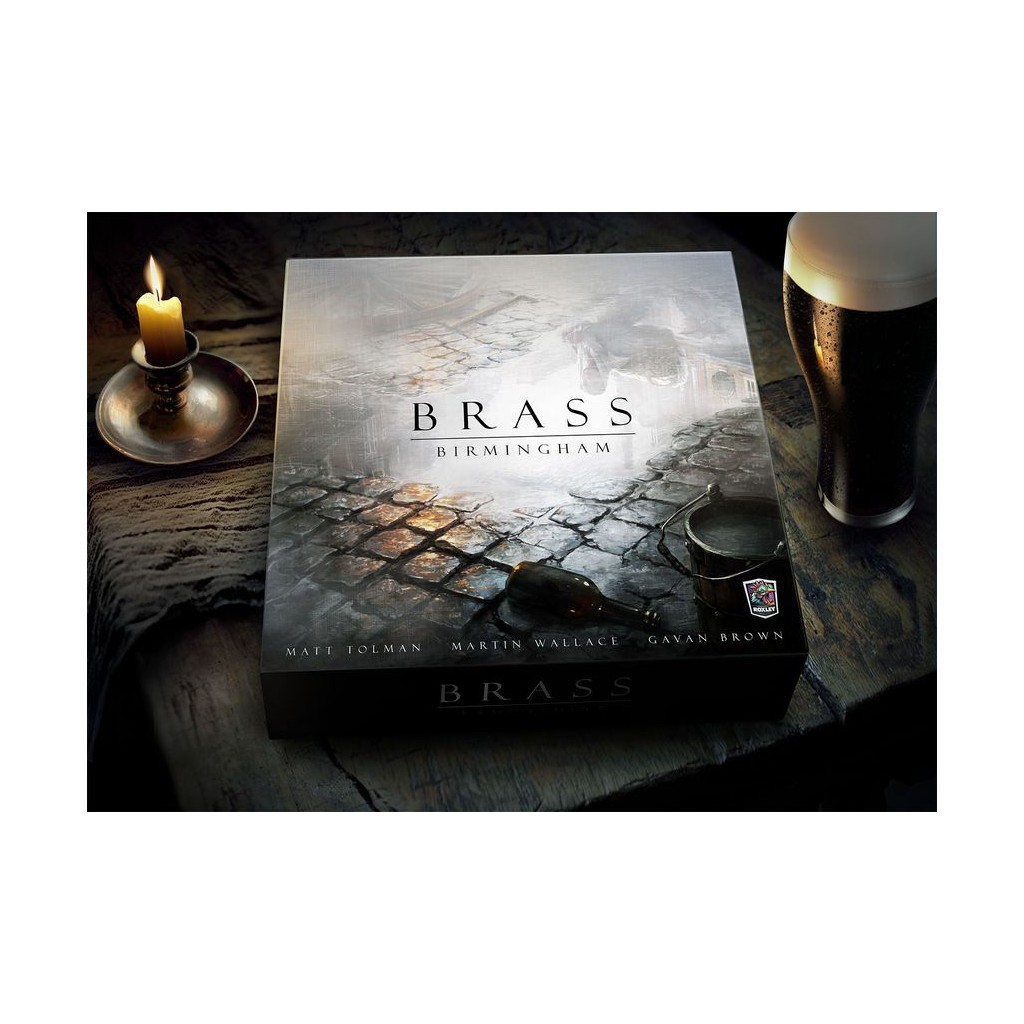
This provides players with the opportunity to score much higher value canals in the first era, and creates interesting strategy with industry placement.

Birmingham tells the story of competing entrepreneurs in Birmingham during the industrial revolution, between the years of 1770-1870. Instead of each flipped industry tile giving a static 1 VP to all connected canals and rails, many industries give 0 or even 2 VPs. Brass: Birmingham is an economic strategy game sequel to Martin Wallace 2007 masterpiece, Brass. You will receive a notification once this product is back in stock 2-4 Players 120 Min Age 14+ DESCRIPTION Brass Birmingham is a master class in economic strategy gaming. VPs are counted at the end of each half for the canals, rails and established (flipped) industry tiles.īirmingham features dynamic scoring canals/rails. 1 review 79.99 Out of stock SOLD OUT Add to Wishlist Enter your email address to receive a back in stock notification Notify Me Submitting request. Each round, players take turns according to the turn order track. The game is played over two halves: the canal era (years 1770-1830) and the rail era (years 1830-1870). 24 Players 60120 Min Playing Time Age: 14+ Brass: Birmingham is an economic strategy.

Each of these traders is looking for a specific type of good each game. You must now sell your product through traders located around the edges of the board. (This action replaces Double Action Build in original Brass.) Retail Edition of Brass: Birmingham Board Game by Roxley Games. New 'Sell' system Brewing has become a fundamental part of the culture in Birmingham. Brass: Birmingham is an economic strategy game sequel to Martin. Birmingham tells the story of competing entrepreneurs in Birmingham during the industrial revolution, between the years of 1770-1870.Īs in its predecessor, you must develop, build, and establish your industries and network, in an effort to exploit low or high market demands.Įach round, players take turns according to the turn order track, receiving two actions to perform any of the following actions (found in the original game):ġ) Build - Pay required resources and place an industry tile.Ģ) Network - Add a rail / canal link, expanding your network.ģ) Develop - Increase the VP value of an industry.Ĥ) Sell - Sell your cotton, manufactured goods and pottery.ĥ) Loan - Take a £30 loan and reduce your income.īrass: Birmingham also features a new sixth action:Ħ) Scout - Discard three cards and take a wild location and wild industry card. Sorry, this product is currently unavailable to order.

3 new industry types include Breweries, Potteries and Manufactured goods. New canal/rail scoring creates tactics in where you place them. Dynamic board setup makes each game unfold completely differently. As in its predecessor, you must develop, build, and establish your industries and network, in an effort to exploit low or high market demands.
BRASS BIRMINGHAM PRE ORDER FULL
The game material is language independent.Brass: Birmingham is an economic strategy game sequel to Martin Wallace' 2007 masterpiece, Brass. Description:A finely brewed full stand-alone sequel to the original game. The rules and hint cards are in Czech and English. Brass: Birmingham is an economic strategy game sequel to Martin Wallaces 2007. The game is designed for 2-4 players aged 14 and up. As in its predecessor, you must develop, build, and establish your industries and network, in an effort to exploit. One of the game's authors is Martin Wallace, who created highly successful games such as Railways of the World and Earthspace: Ankh-Morpork! Brass: Birmingham is an economic strategy game sequel to Martin Wallace' 2007 masterpiece, Brass. In this modern successor to the masterpiece Brass: Lancashire, you'll not only expand your industrial empire with the help of water canals and railways, but also build and develop various industries including spinning mills, coal mines, ironworks, manufactories, porcelain factories and breweries.

Brass: Birmingham tells the story of rival industrialists in and around Birmingham against the backdrop of the English Industrial Revolution, between 17.


 0 kommentar(er)
0 kommentar(er)
